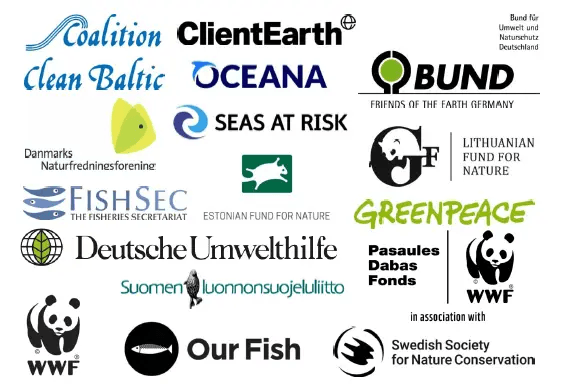Joint NGO recommendations on Baltic Sea fishing opportunities for 2022

We are running against the clock to stop the collapse of the Baltic Sea ecosystem and deliver on political promises to halt the climate and nature crises.
The setting of fishing opportunities at sustainable levels is an essential precondition to deliver on these promises. The European Ombudsman has confirmed that fishing opportunities documents contain ‘environmental information’ within the meaning of the Aarhus Convention, and made recommendations to improve the transparency of the Council when setting fishing opportunities. The Ombudsman further confirmed a finding of maladministration in April 20205, expressing disappointment that Council decision-making contravened key democratic and transparency standards. .
The October AGRIFISH Council provides the Commission and fisheries ministers with a clear and attainable opportunity to deliver on their commitments in the updated HELCOM Baltic Sea Action Plan and the Our Baltic Declaration from 2020, as well as on their legal obligations according to the CFP to end overfishing. It is also an opportunity to begin to realise the ambition of the Biodiversity Strategy.
The following text outlines the joint NGO recommendations on Baltic Sea fishing opportunities for 2022 in the context of environmental regulations, EU fisheries legislation, scientific advice on catch limits, and the sharing of stocks with third countries.
Overall, we urge the European Commission to propose, and fisheries ministers to agree on, fishing opportunities in accordance with the following recommendations:
● Set TACs not exceeding scientifically advised levels based on the MSY Approach for all stocks for which MSY-based reference points are available;
● Where MSY-based reference points are not available, set TACs not exceeding the Precautionary Approach catch limits advised by the International Council for the Exploration of the Sea (ICES);
● Set TACs not exceeding the FMSY point value specified in the Baltic Sea Multi-Annual Plan (MAP).
While also taking the following factors into consideration:
● Set TACs at more precautionary levels and in line with an ecosystem-based approach to fisheries management (along with additional spatial and temporal measures) to accommodate stock-specific uncertainties (catch misreporting, discards, assessment bias etc.), interspecies stock dynamics (e.g. sprat-cod) and low recruitment trends of individual stocks, whilst also considering other pressures (pollution, eutrophication, climate change) on the Baltic ecosystem that are likely to affect the abundance of fish stock biomass;
● Fully utilise the precautionary approach in relation to mixed fisheries, protecting the most vulnerable stock either by closing areas with high mixing or dramatically reducing quotas to safeguard sub-populations;
● Take into account the lack of implementation of the Landing Obligation (LO) when setting TACs, and either require remote electronic monitoring (such as cameras) or onboard observers for all vessels above 12m and for medium and high risk vessels below 12m, or set TACs below ICES catch advice to ensure illegal, unreported discarding does not lead to actual catches exceeding ICES catch advice;
● Take into account that control with onboard observers was significantly reduced in 2020 due to the Covid-19 pandemic, and discard rates may therefore be higher than observed.
Additionally, we call for improved transparency of negotiations and decisions as follows:
● Provide transparent calculations for TACs based on the ICES advice on fishing opportunities;
● Improve transparency by making publicly available any proposals subsequent to the official Commission proposal, including Commission non-papers, Council Working Party, and AGRIFISH Council documents and minutes.
Finally, the European Parliament, as a co-legislator of the CFP basic regulation and of the Baltic Sea MAP, should be vigilant that no infringements of the rules for which it is responsible occur, and that the overarching objective of ending overfishing in the EU is fully achieved. We therefore recommend that members of the European Parliament ensure effective scrutiny of the TACs set by the Council, as well as any technical measures adopted when agreeing annual fishing opportunities.
Read and download the full NGO TAC 2022 recommendations here.

